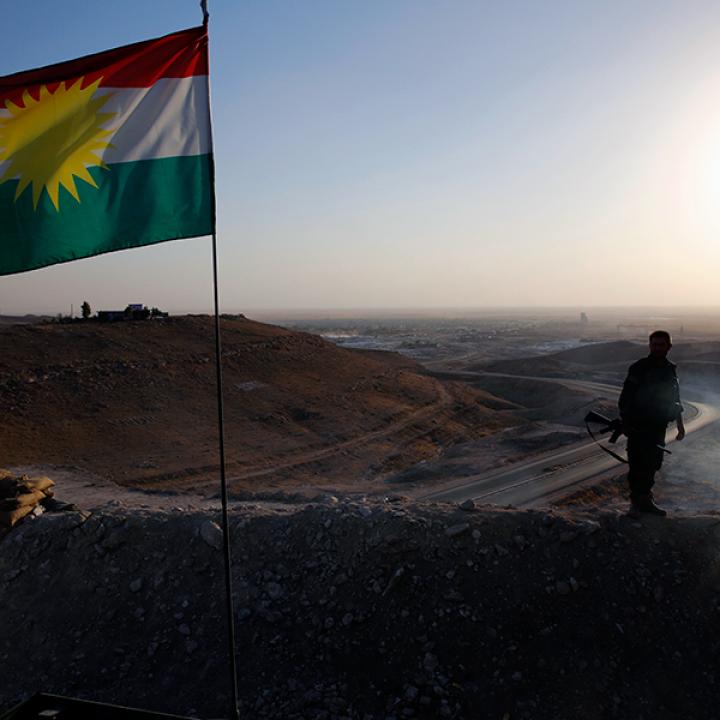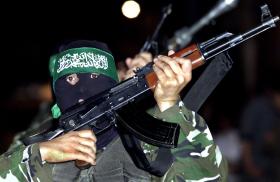

Whether Iraqi Kurdistan becomes a de facto or de jure nation, it will face the same challenge that all oil-dependent states face: the need to diversify its economy, create good jobs, and live within its means as a hedge against fluctuating oil prices.
Kurdistan is a transnational patchwork quilt of territories spread across Turkey, Iran, Syria, and Iraq. Though only six million out of a total of 32 million Kurds live inside the current territorial borders of Iraq, these Kurds have achieved the greatest autonomy of any of their brethren. Saddam's defeat in the 1991 Gulf War led him to withdraw his forces from much of present-day Iraqi Kurdistan. For over a decade prior to the 2003 invasion, the Iraqi Kurds ran their own UN-protected statelet, secured by the Kurdish fighters, the Peshmerga, and Coalition airpower, and funded by a UN-administered share of Saddam's oil exports. The Kurdistan Regional Government (KRG) even used a different currency from Saddam's Iraq, relying mainly on old out-of-circulation Swiss-printed Iraqi dinar and U.S. dollars.
To understand what has happened in the KRG since 2003, and what will happen next, it is important to recognize that Iraqi Kurdistan achieved a high level of autonomy during 1991-2003, and to view the post-2003 period as a trial-run at national reintegration. With U.S. prodding, the Kurds reentered Iraq's economy, receiving a share of Iraqi oil revenues by mutual agreement with Baghdad rather than by UN mandate. Many areas claimed by the Kurds were jointly administered with the federal government. For instance, some teachers and police were appointed and paid by the KRG and some by Baghdad. Kurds were represented in the federal Iraqi government, parliament, and military.
Since the June 2014 collapse of the Iraqi Army and a year of see-saw battles with the Islamic State of Iraq and the Levant (ISIL), the Kurds have expanded their military control to encompass almost all the territories they care about. The trial-run of economic reintegration is now arguably coming to an end. Iraqi Kurdistan is demonstrating an ability to export around 650 thousand barrels per day of oil, generating enough revenue to narrowly cover the bloated government sector payroll in the Kurdish region. De facto control on-the-ground and de facto economic independence from Baghdad are now established.
The next logical steps toward full self-determination will be much trickier and slower to navigate. The Kurdistan Region hopes to hold referenda in disputed areas claimed by both the Kurds and Baghdad, giving locals the choice, often stacked demographically in the Kurds' favour, to formally accede to the KRG. Yet this step may sharpen ethnic divides within areas, opening up space for ISIL to operate, and could pit the KRG's entrenched political parties against each other. If the multi-ethnic city of Kirkuk joined the KRG through a narrow majority of voters, the result could be years or decades of increased instability. Likewise, if Kirkuk joined the KRG, the Patriotic Union of Kurdistan (PUK), dominant in Kirkuk, might gain an edge in the Kurdish parliament over its main rival, the Kurdistan Democratic Party (KDP).
There may also be complications around any independence referendum that the Kurds eventually launch to decide whether the KRG remains a region of Iraq, transforms into a confederal entity on par with the Iraqi federal state, or breaks away as a fully independent aspiring nation, able to borrow, buy weapons, issue passports, and control airspace like any other country. Many non-KDP elements want an ongoing but looser administrative relationship with Iraq, and many Kurdish-controlled areas still rely predominately on government salaries provided by Baghdad. The Kurds are still figuring out how their region should be governed, disagreeing sharply on the division of powers between their presidency, cabinet, and parliament. Though no state is ever fully ready for independence, Iraqi Kurdistan still has to resolve some of the most fundamental issues as a society. International recognition of an independent Kurdistan will be likelier if the Kurds are united and working in accord with Baghdad on the key issues that the outside world cares about, chiefly the anti-ISIL campaign.
Whether Kurdistan becomes a de facto or de jure nation, it will ultimately have to face the challenge that all oil-dependent states face: the need to diversify its economy, create good jobs, and live within its means as a hedge against fluctuating oil prices. This battle for economic maturity, discipline, and transparency will be a generational struggle on par with the anti-ISIL campaign in terms of difficulty. But only by simultaneously conquering political, economic and military challenges can a strong and independent Iraqi Kurdistan take the next step in its national development.
Michael Knights is a Lafer Fellow with The Washington Institute.
The Cipher Brief



